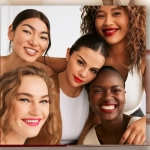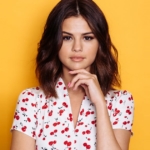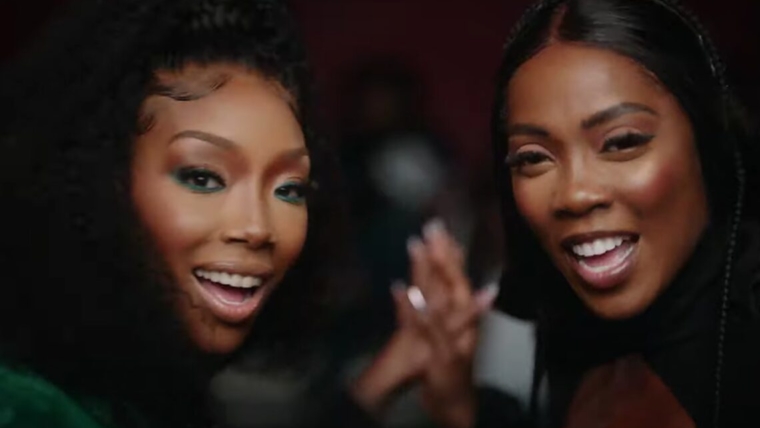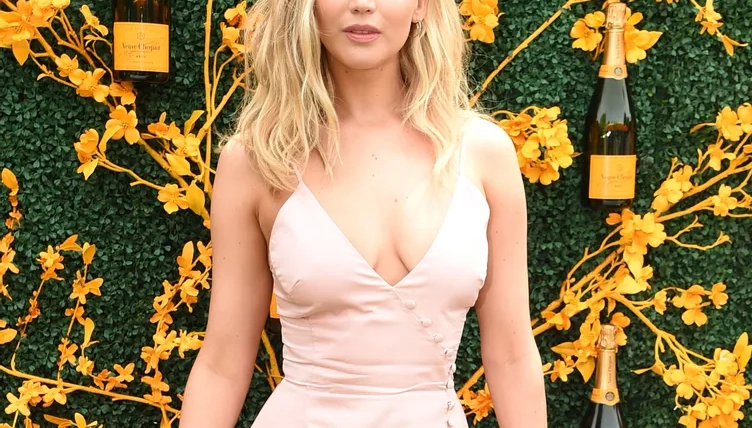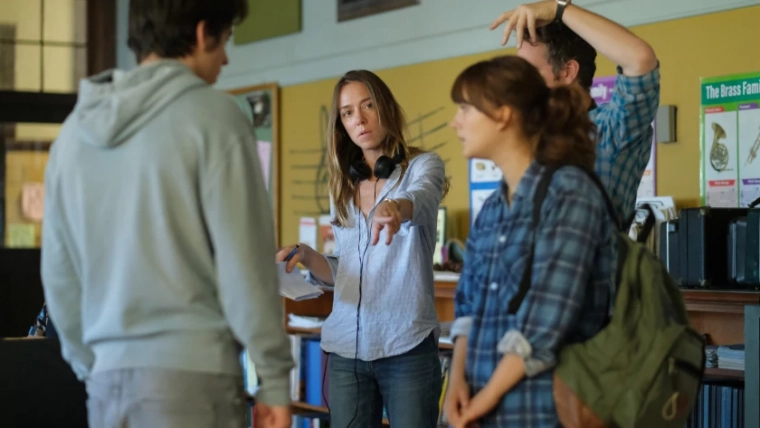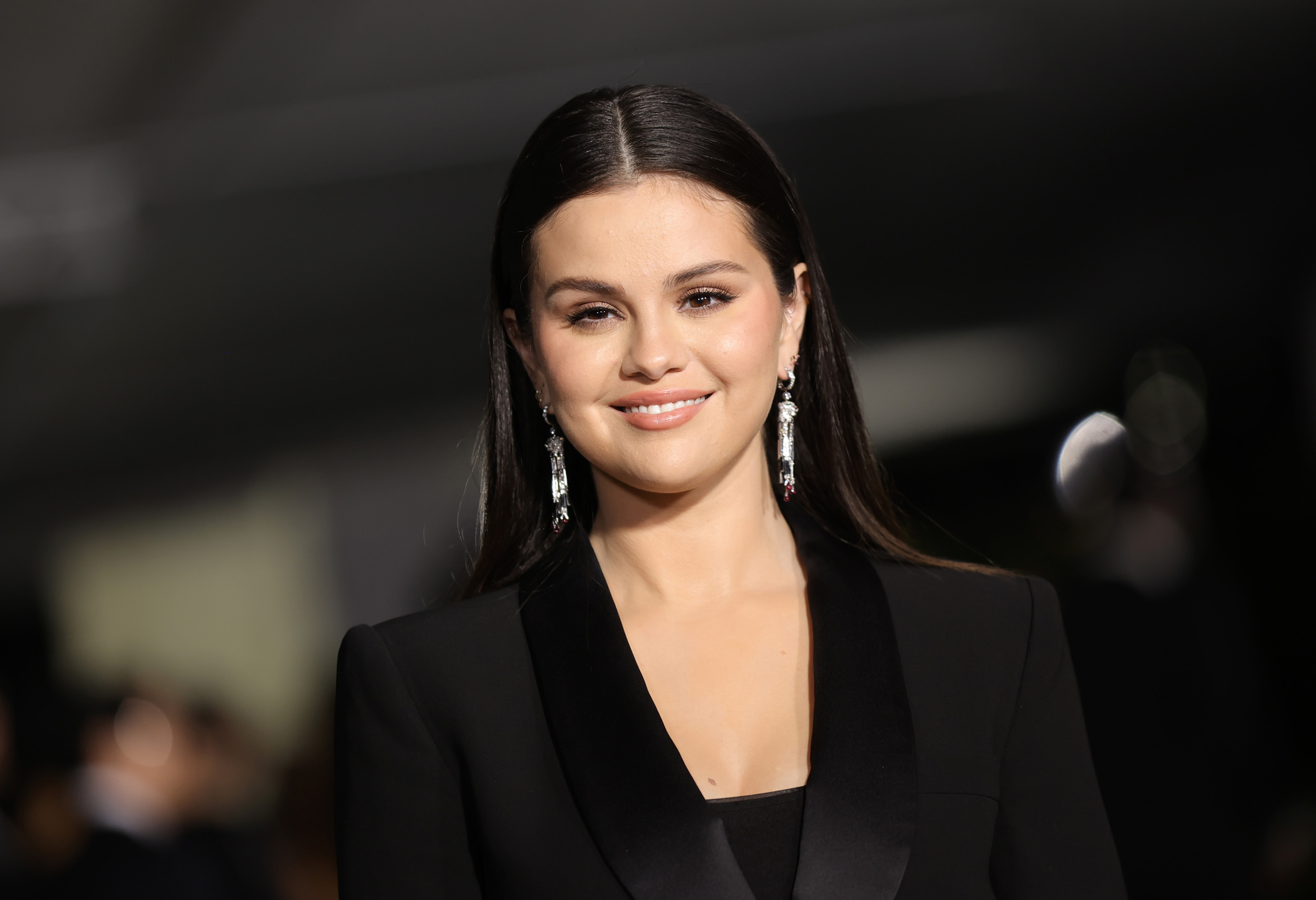
Selena Gomez on the Powerful Vulnerability of Her New Documentary
By Chloe Schama
There is a moment early in Selena Gomez: My Mind and Me, the new documentary premiering November 4 on Apple TV+, in which the star admits to the people gathered in her dressing room: “My body is very young.” She’s talking about the way a certain outfit emphasizes—or doesn’t—her figure, making her appear, as she puts it, “like a 12-year-old boy.” But it’s more than just an assessment of her costume; it’s also a gesture toward one of the central tensions of the star’s career and this film—the precise pressure that a self-awareness of other people’s awareness can impose. Will her fans see a shadow of the Disney star she once was? Or will they see a powerful singer in her own right? How does her clothing, behavior, performance—essentially every move she makes—contribute to the narrative that her fans and detractors are relentlessly constructing?
It might seem strange that someone so conscious of that attention would choose to make a documentary about their mental health struggles, particularly with this director. Alek Keshishian first worked with Gomez on the music video for “Can’t Keep My Hands to Myself,” but he is probably best known for Madonna’s groundbreaking and intimate backstage documentary Truth or Dare (1991), which was the highest-grossing documentary of all time until Bowling for Columbine surpassed it. “I like to have access to everything,” he says when he, Gomez, and I speak via Zoom before the film’s premiere. There were moments, Gomez tells me, when she wanted to cry as she watched the final cut—not because of how exposed it made her, but because she hated that she felt the discomfort or insecurity that the film so pointedly captured.
In some ways, My Mind and Me is merely a chronological recounting of the past six years of Gomez’s life: the touring, the physical and mental health crises that accelerated in those years, the cancellation of her Revival tour, a two-year pause on touring, a trip to Kenya for charitable work, the pandemic, and a trip to the White House to discuss mental health curricula in grade schools. The documentary also affords unprecedented insight into the way these events were affected by what was going on in Gomez’s head and body—most dramatically, in 2019, when she had a breakdown and was officially diagnosed with bipolar disorder. Poignantly, we see the moment Gomez decided to go public with her precise diagnosis, and the lack of hesitation she felt in doing so, spurred by her instinct that greater openness could lead to greater destigmatization.
My Mind and Me is not an indictment of the media in the manner of Framing Britney Spears or other documentaries that have exposed the relentless pressure of being a young famous woman. But it is something of a damming document nonetheless: a catalog of the repetitive and inane questions or games Gomez is asked to answer or play. It’s all a big eye roll, but it also adds up to something more. “Such a waste of time,” she sighs after one such interview, and in her life, where every moment is milked for some larger purpose, it’s hard not to agree.
With determination not to waste her time, we sat down with Gomez and Keshishian to discuss the many years they spent making this film together and what they hope it will accomplish.
Vogue: Tell me how the idea for this film came about.
Alek Keshishian: I worked with Selena in 2015 on “Can’t Keep My Hands to Myself,” and then when she was going on tour in 2016, she approached me about doing a documentary. And then we decided after a few weeks that the timing didn’t feel right. I’m quite intrusive in my filmmaking insofar as I like to have access to everything. Selena was very bravely like, “No, I’ll give you that.” But after a few weeks, I just kind of felt like she was going through a lot, and to have cameras there on top of it just didn’t feel right. We stayed friends, obviously. I fell in love with her.
Her Kenya trip [in 2019 with the WE Foundation] allowed us another opportunity. I said, “Let’s film a few days before.” We didn’t really know if there was going to be a bigger documentary; I think we were quite innocent about it. But we developed a closeness, and then we had this shared vision that this story could maybe help others. And that became our motivating factor as we kept shooting.
Alek, you’re very well known for the Madonna documentary, and that’s obviously a very intimate portrait of a very famous person. Were you, Selena, excited about having that kind of exposure? Or were you nervous about it?
Selena Gomez: I definitely had moments where I was super gung ho. But then there were moments where I felt nervous. It’s very vulnerable. To be honest, it can be a little uncomfortable even watching some of it. But when Alek was there and it was just Alek, I would feel comfortable. Like when my lupus was flaring up. He filmed it, but he filmed some, and then he was there for me.
Is it harder to be on film exposing yourself or writing a song that is very open?
Gomez: I definitely want to go into hiding after this comes out. I had to separate myself from it and understand what I felt the movie was going to be for other people. So I’m kind of sacrificing myself. You know, I love my job, but at the end of the day, I do want to be impactful in some way. And if that’s by sharing a part of myself that isn’t necessarily pretty and put together, there are hopefully people that can look at that and think, Oh, maybe I feel this way, or, I didn’t know that you could get this kind of help.
One of the moments that really struck me in the film is when you talk about saying difficult things to people you love, like your parents. Do you have advice for friends and family members of people who suffer from mental health issues?
Gomez: I don’t like the approach where it seems like I’m a patient. I don’t like how that feels. My advice to those people would be to be there as a friend. And I feel like sometimes you don’t want to be parented. You just want to have a friend. And listen and love unconditionally.
Keshishian: Having been witness to it, I think there’s a great deal to be said about forgiveness. And I think forgiveness goes two ways. None of us are perfect. None of us are perfect in the way we interact, especially with family. But witnessing Selena and her mom, there is forgiveness. And when you get back to that core love—that’s the road to healing.
Speaking of friendship, Alek, I saw your post on Instagram that called Selena’s friend Raquelle Stevens the costar of the film. What role do you think friendship has in supporting people who are going through some of these things?
Keshishian: Raquelle is such a fun presence to me. There were moments where I was like, Oh my God, this is like Laverne and Shirley, these two, because they’re really funny together. And yet when push comes to shove, she’s kind of like a little Yoda. She says stuff that hits the mark. But the friendship survives all of those things because they do really love each other. And that friendship—the way it survives everything—was really powerful to me. I grew to really love Raquelle because of the way she treats the people around her, which ultimately is from a place of deep and unconditional love.
Gomez: It was a coincidence because she ended up being one of my friends that went on the trip to Kenya. I think I just wanted my friend to come with me, and she is the kind of person who I’ve known for 10 years and can hold the mirror up to me sometimes.
And how did you guys meet initially?
Gomez: We actually met at a New Year’s Eve party. I was going through a breakup, and I was not having a great New Year’s, and she was so nice. She just asked me how I was, and she had a sweet presence about her. And we ended up talking for like two hours that night.
When did you both decide the film was finally finished?
Keshishian: When she went to the White House [for a conversation with President Biden on mental health], that fulfilled a dream that had at times suffered, maybe, because of a lack of confidence. She had to get to that place of “I can do this.” So for me as a filmmaker, it felt like the right ending. Because honestly, I find her so fascinating. I could shoot endlessly, although she would not like that. But the real ending of this film is where you see her today. She’s already so different from where the movie ends.
And where is the effort to get a mental health curriculum into schools, which was part of what you discussed with Biden?
Gomez: I’m working on it through the Rare Impact Fund. We’ve been working with a bunch of schools, and we want to create relationships with people to help us do that. When I went to the White House, I was talking to the Surgeon General, and he said that this was a huge focus for them too. So now I’m texting with him, which feels really weird [laughs] but cool. Like, really cool. He’s super forward-thinking and wants to create change, and he has the sense that it’s urgent and that we are at a critical moment. Because of COVID, many people who have never experienced anxiety may all of a sudden be experiencing panic attacks. So it feels very relevant.
When you were describing the critical moment, I thought you might be talking about the effect of social media. Can you talk a little bit about the effect of social media on your mental health?
Gomez: I have not had access to my Instagram account in four or five years; I don’t know my password. It wasn’t necessarily an addiction. I just didn’t want to know it because I didn’t want to have a weak moment. When I was on it, I was finding things out that I didn’t want to find out and seeing things that were awful. It was just dehumanizing and really disheartening. I don’t find it to be a safe place whatsoever, and I’m very vocal about that. However, I am on TikTok [laughs], and I feel that TikTok is a bit more loose and people can have more fun. It still has its moments. I take days and weeks away from it, and I do that very intentionally.
What else do you do to maintain your health and wellbeing these days?
Gomez: Slowing down. I wake up early now. If I have an appointment or a photo shoot or something, I will wake up two hours before that. I usually wake up with the sun, and just take a few deep breaths and walk around, wake my body up a bit, and maybe listen to some music. I dream a lot, so maybe I’ll write for a bit and drink coffee. It’s either that or a workout: Physical health is super connected to mental health. Even just a walk, I’m not talking about doing, like, Barry’s Bootcamp. Obviously I’m in therapy, and I try to surround myself with people who have struggled with the same thing, so that I know who to call, and I can share a moment or even just have a conversation. I find that really helps me.
Were there moments where you disagreed on what you wanted from the film?
Gomez: There really weren’t. If there were to be a moment, I would feel very comfortable saying, “Alek, I don’t think that’s right.”
Keshishian: I think she trusted me because she knew that I felt for her. I could just watch her looking at my film and know where I needed to finesse, because I shared her opinion usually. It took a lot of time to get right. But we never disagreed because I wanted to make a film that she could stand behind and that I could stand behind.
Is there anything you want people to really get from the film on a secondary or deeper level?
Gomez: I just think there are moments in the film where I personally feel bad about how I felt. In the beginning, for example, when I’m talking about my body, I cry thinking about it because I hate that I ever felt that. And that’s such a real feeling. I’m glad I don’t really have that mentality anymore, but it did break my heart watching that.
Keshishian: We set out to make a movie that had some breadth to it. Everyone, at times, faces challenges and darkness. And it may not even be mental health. It may be a loss of a job, an illness, or grieving. Hopefully the film gives people hope that you can still do something with your life and that you can still bring light out from those dark moments.
This interview has been edited for concision and clarity.


